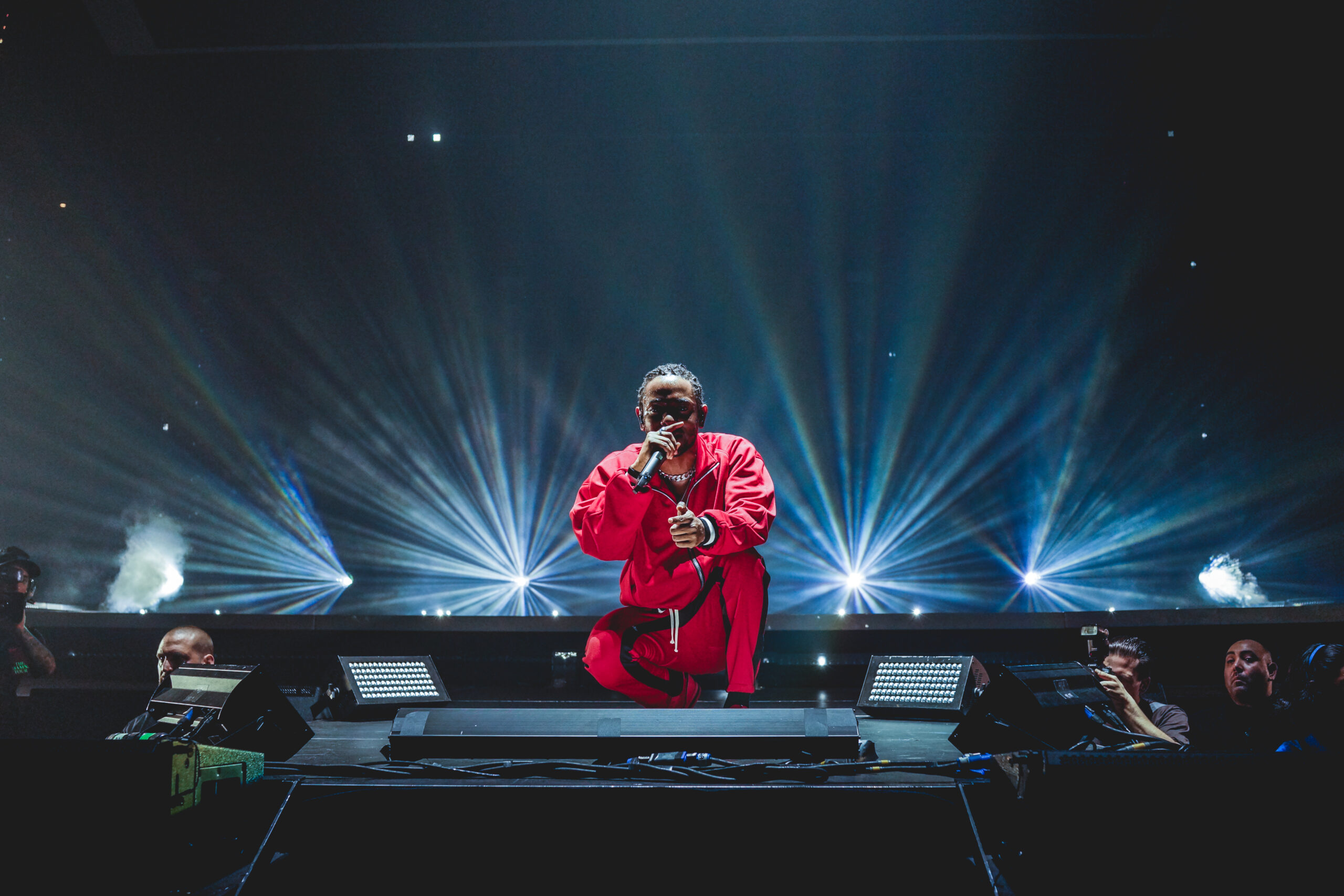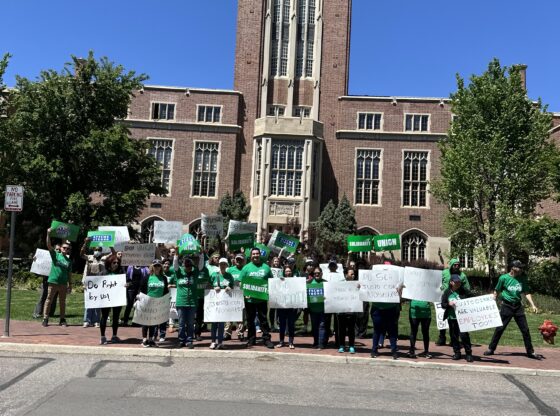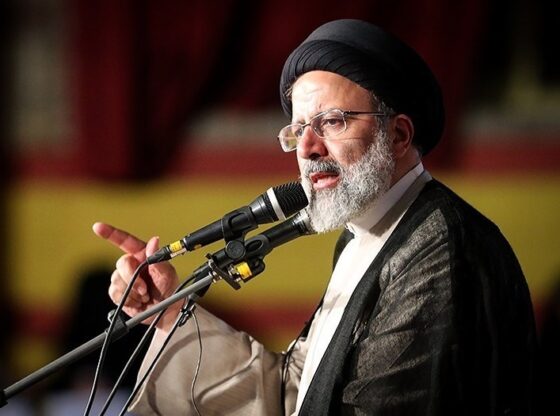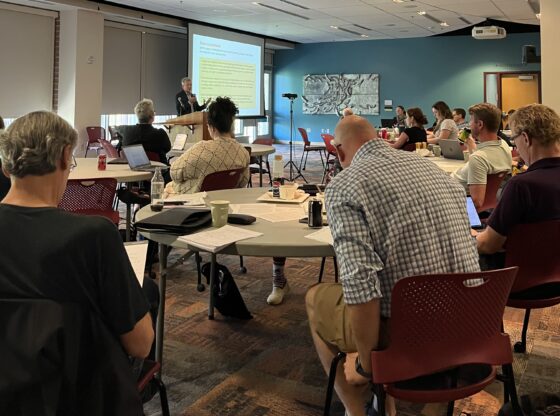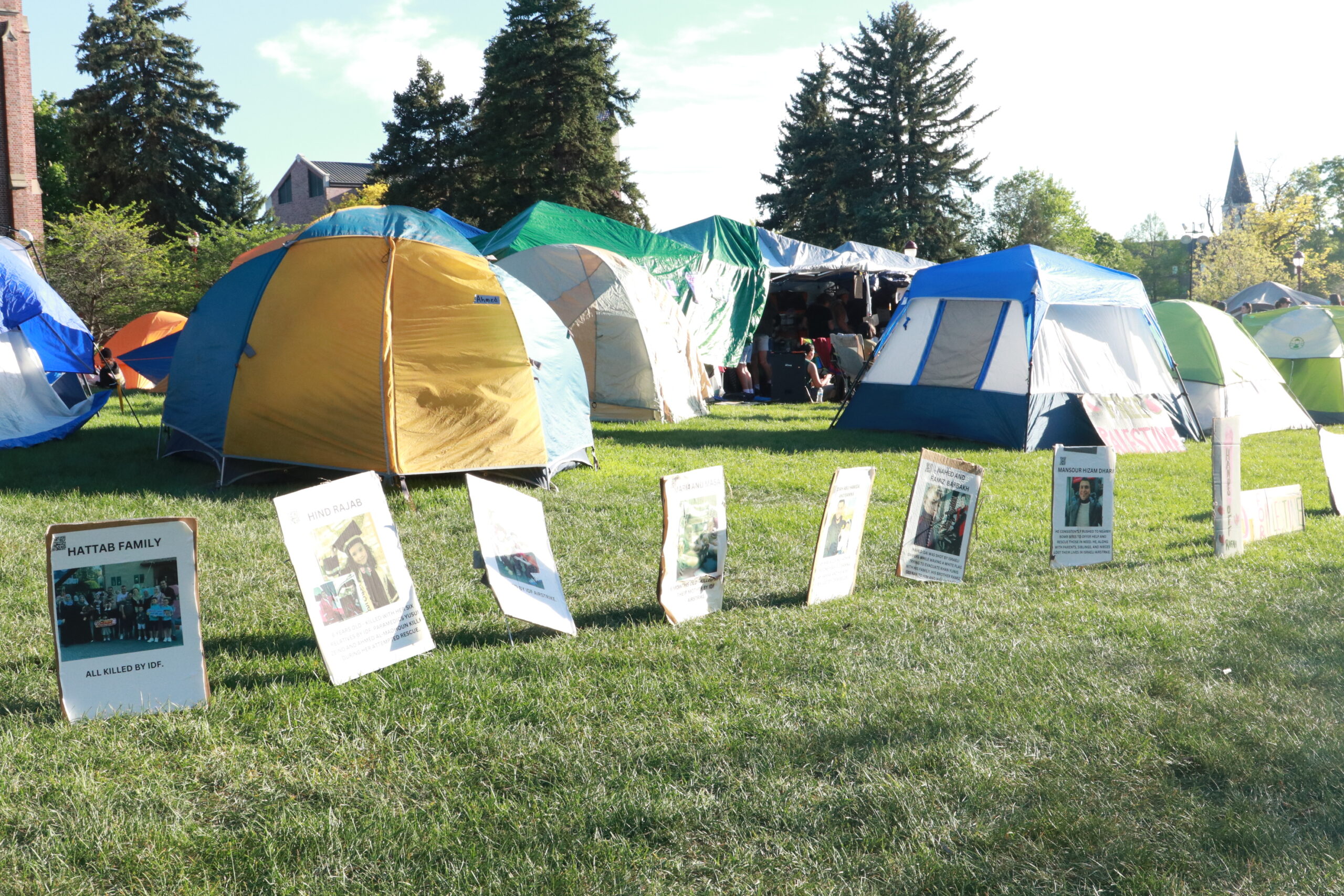At what point does a desire to appear objective hurt the accuracy of reporting?
This is one of the questions last Wednesday’s panel, “Journalism & Democracy: Covering vulnerable populations and social unrest,” tried to address. The panel, moderated by visiting professor Julian Rubinstein, best known as the author of the Colorado Book Award-winner, “The Holly,” and for directing the documentary of the same name, delved into the shifting landscape of journalism and its relation to social movements in the U.S.
The lineup consisted of Wesley Lowery, a Pulitzer-Prize winning journalist who wrote The New York Times Bestseller, “They Can’t Kill Us All,” Helen Richardson, a photographer for the Denver Post and Marie Berry, a professor and director of the SIE Cheou-Kang Center for International Security and Diplomacy.
The panel was introduced by Derigan Silver, chair of the Media, Film and Journalism Studies department, who referenced Lowery’s recent story in The Columbia Journalism Review, which argued that chasing objectivity can devalue journalism. When news organizations describe incidents as racially-tinged in order to seem unbiased, they ignore what they actually are. Richardson talked on the differences between journalism and activism. Journalists are supposed to cover both sides, to tell a story, rather than to directly advocate for a cause.
Additionally, Richardson spoke publicly for the first time about the October 2020 shooting she photographed at a downtown Patriot protest, in which a 9News security guard killed a protester. The incident, Rubinstein stated, illustrated not only the potential for violence that is now present at American protests, but also how journalists and media companies now feel compelled to hire armed security for protection.
Some of the panelists addressed how the profession has become more dangerous in recent years, and that in a world of social media, it’s important that journalists do their due diligence.
The next question asked was: “What do you think is the media’s greatest struggle as it pertains to social movements?” Lowery stated that this is a time unlike any other in human history. The press has been democratized; through social media, everyone has a printing press and can publish something for the world to see. First Amendment rights are fully realized as the public chooses to cover stories that are skipped over by the mainstream press. He said that there’s a beauty to that, but it only makes traditional journalism more important because of the standards and practices required to publish in most traditional journalism outlets.
For Lowery, the credibility crisis journalism is facing is not unique; faith in almost all institutions is declining. But, he said, the reason why many might not trust the media is because the media they consume is untrustworthy. He reiterated that people need nuanced, complex journalism, not the media content that can be found on Instagram and Facebook feeds.
Lowery described journalism as an industry that has been gutted by a need for speed, where reporters try to rush pieces to get clicks rather than take the time to check all the sources. This media machine, where corrections happen often, naturally leads to distrust. He mentioned the pronounced role of capitalism, forcing organizations to chase the money to keep the lights on.
Rubinstein asked if mainstream media is becoming part of the political system that has failed so many Americans. Lowery believed so, describing the often cozy relationship between institutions and publications. To quickly get sources to comment and react to events, journalists and sources develop relationships that can become compromising. He brought up the concept of how journalists asked questions, how far they push with questions and the subjectivity involved with each comment.
To illustrate this, he told a story about protesters staging a sit-in after a police shooting. The police broke up the protest violently, justifying such force by claiming that the protestors were attacking the police. Lowery pushed the police to verify this, questioning the official account of events. Ultimately, he ascertained that the police had no evidence of violence, and he came to believe it was an attempt to spin the story in their favor. He pointed out that journalists should not blindly report what the government says is true, as it could just be what they hope is right. Journalists have a responsibility to critique, he said, not just to report what was fed to them, but to determine if those comments are true.
Next, the panel delved into the myriad staffing cuts to media organizations. Richardson mentioned that when she was working at the Denver Post ten years ago, there were three hundred people. Now, there are sixty. The company itself is run by a hedge fund in New York, and as a financial institution, it is obligated to try to make as much profit as possible. Lowery explained that personnel cuts can result in a lack of specialization, leaving stories without insightful depth.
When a company’s interests conflict with its values, that’s when poor journalism happens. Lowery described the idea of treating journalism like a utility rather than a business, where the goal isn’t to make as much profit as possible, but rather to do the best job possible.
Berry finished by talking about how we’re in the seventeenth year of democratic decline according to a report from Freedom House, and that this results from unbridled capitalism causing inequality. In many countries, the free press has been shuttered, and journalists are being surveilled like never before. Activists and journalists need to hold the line against the decline of freedom, she said.



